Home > Climate News >

Cornell University divesting from fossil fuels to focus on alternative energy, renewables
The investments for this category are expected to decrease to zero over the next five to seven years as the investments mature, according to Bob Howarth, a Cornell professor of ecology and environmental biology who helped lead the divestment efforts and now heads the University Assembly.
Instead of investing in fossil fuels, the university will grow its $6.9 billion endowment portfolio by investing in alternative energy and renewables…
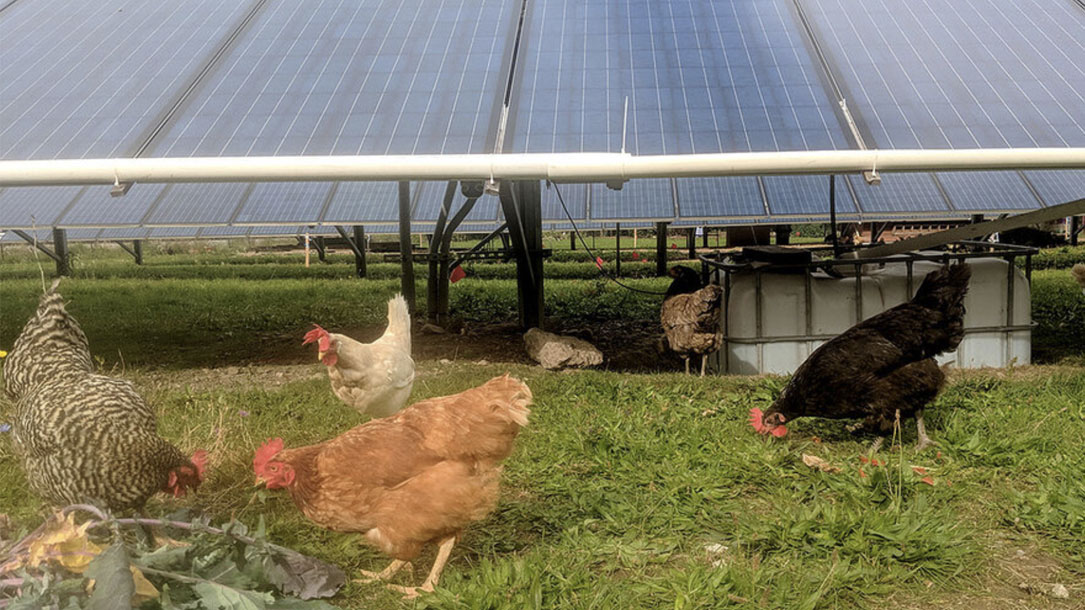
A new vision for farming: chickens, sheep, and…solar panels
When Jackie Augustine opens a chicken coop door one brisk spring morning in upstate New York, the hens bolt out like windup toys. Still, as their faint barnyard scent testifies, they aren’t battery-powered but very much alive.
These are “solar chickens.” At this local community egg cooperative, Geneva Peeps, the birds live with solar power all around them. Their hen house is built under photovoltaic panels, and even outside, they’ll spend time underneath them, protected from sun, rain, and hawks…
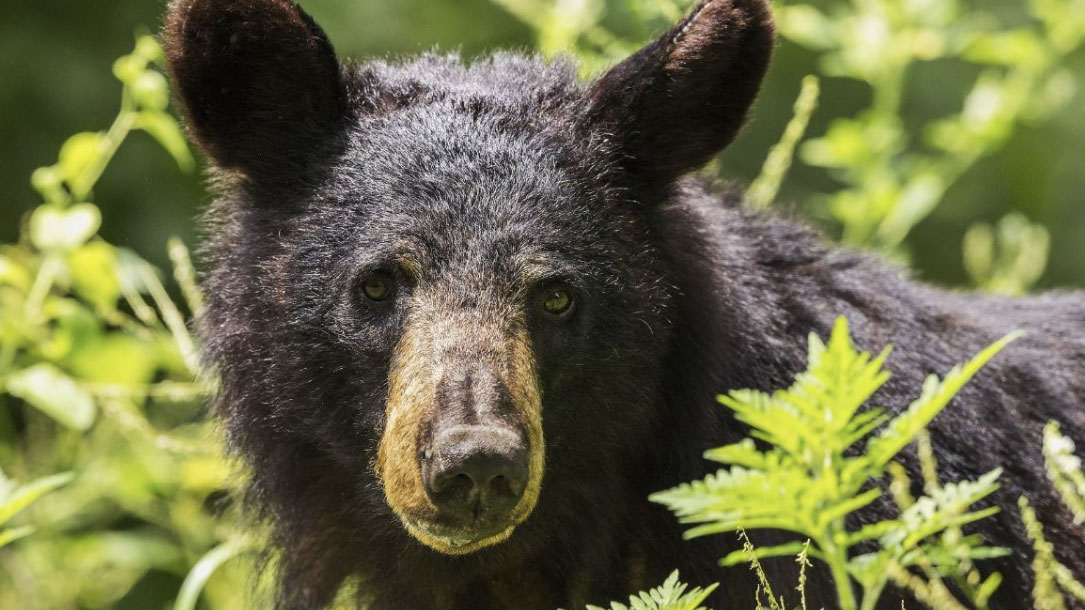
Wildlife collapse from climate change is predicted to hit suddenly and sooner
“It’s not that it happens in some places,” said Cory Merow, an ecologist at the University of Connecticut and one of the study’s authors. “No matter how you slice the analysis, it always seems to happen.”
If greenhouse gas emissions remain on current trajectories, the research showed that abrupt collapses in tropical oceans could begin in the next decade [emphasis added]. Coral bleaching events over the last several years suggest that these losses have already started, the scientists said. Collapse in tropical forests, home to some of the most diverse ecosystems on Earth, could follow by the 2040s…
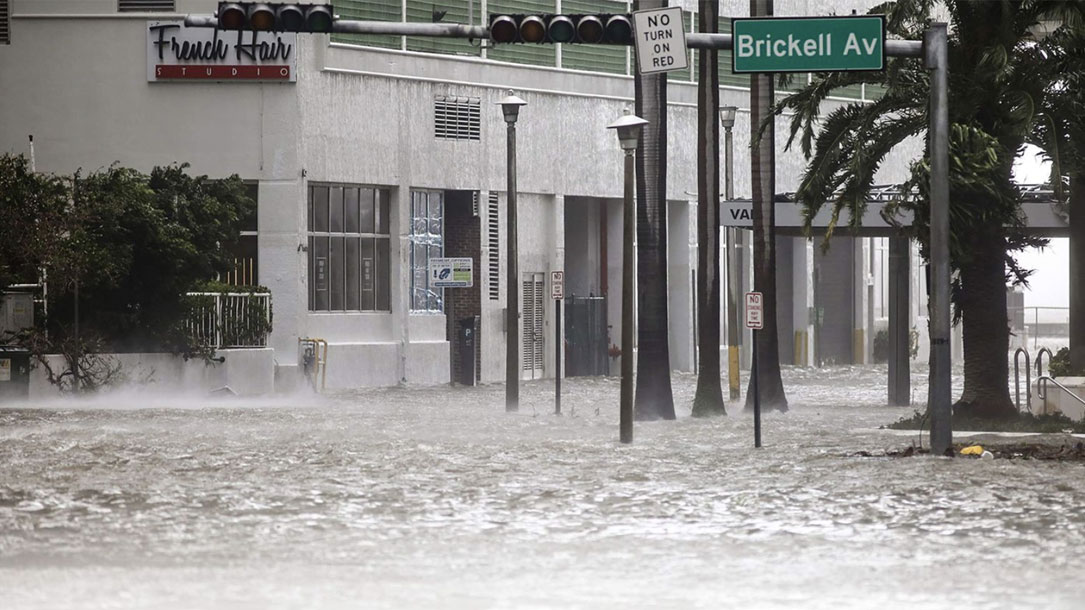
How I convinced my dad climate change is real
Lance was a member of the inaugural County Youth Chair program and serves as their youngest Spokesperson. He recently graduated Bayshore Christian High School in Tampa, Florida (where he was salutatorian) and is headed to The College of William and Mary to study political science.
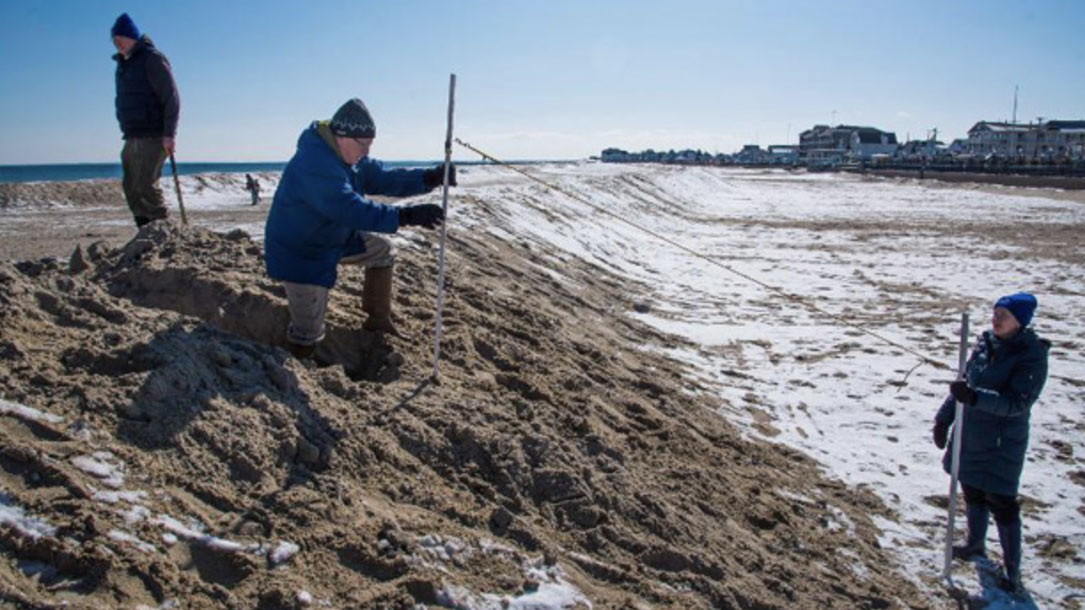
As storms and sea level rise reshape beaches, volunteers keep track of changing coasts
The Hampton Beach profilers and their fellow Coastal Research Volunteers are a community group facilitated by New Hampshire Sea Grant. The National Sea Grant College Program (Sea Grant) is a NOAA-funded network of 34 programs in each of the U.S. coastal and Great Lakes states. Sea Grant supports research, education, and outreach to help balance the conservation of coastal and marine resources with a sustainable economy and environment.
In addition to New Hampshire, Sea Grant also engages community volunteers in monitoring beaches in California and Maine. All rely on dedicated “citizen scientists” to collect critical data on the erosion and health of their state’s sandy beaches. Beach profiling volunteers measure changes in beach slope with a pair of two-meter poles, a short connecting rope, and the horizon line…
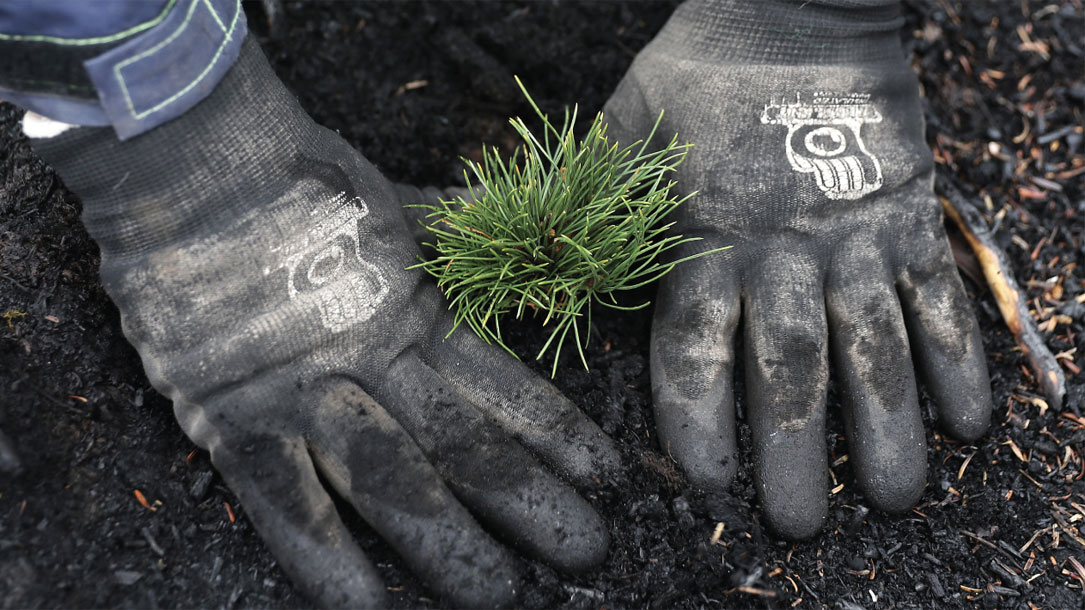
Two-thirds of Americans think government should do more on climate
A majority of Americans continue to say they see the effects of climate change in their own communities and believe that the federal government falls short in its efforts to reduce the impacts of climate change.
At a time when partisanship colors most views of policy, broad majorities of the public—including more than half of Republicans and overwhelming shares of Democrats—say they would favor a range of initiatives to reduce the impacts of climate change, including large-scale tree planting efforts, tax credits for businesses that capture carbon emissions, and tougher fuel efficiency standards for vehicles, according to a new Pew Research Center survey…
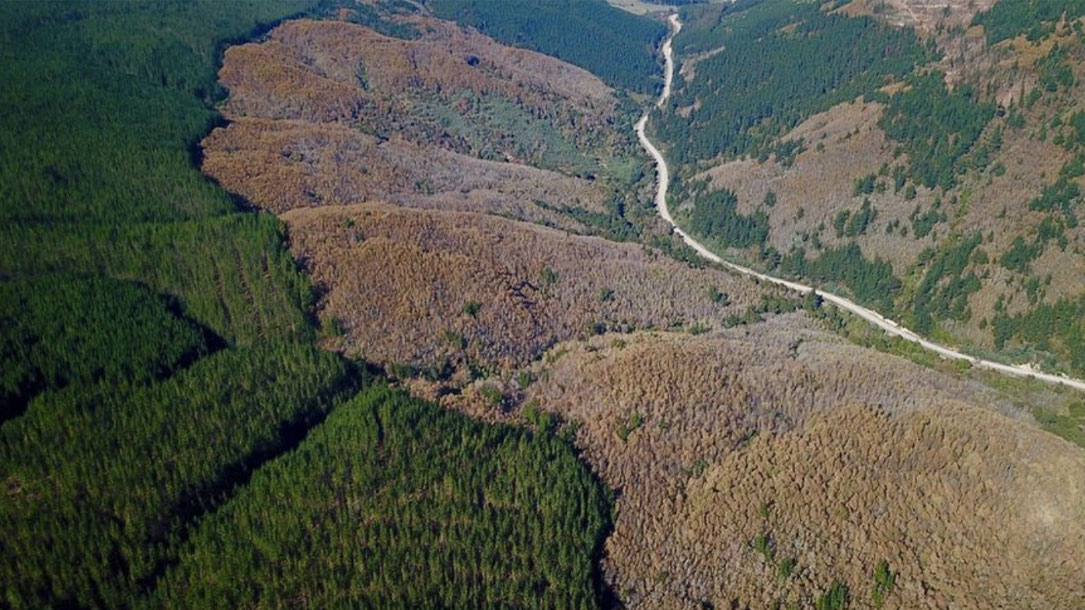
Climate change: Planting new forests “can do more harm than good”
Rather than benefiting the environment, large-scale tree planting may do the opposite, two new studies have found.
One paper says that financial incentives to plant trees can backfire and reduce biodiversity with little impact on carbon emissions. A separate project found that the amount of carbon that new forests can absorb may be overestimated.
The key message from both papers is that planting trees is not a simple climate solution…
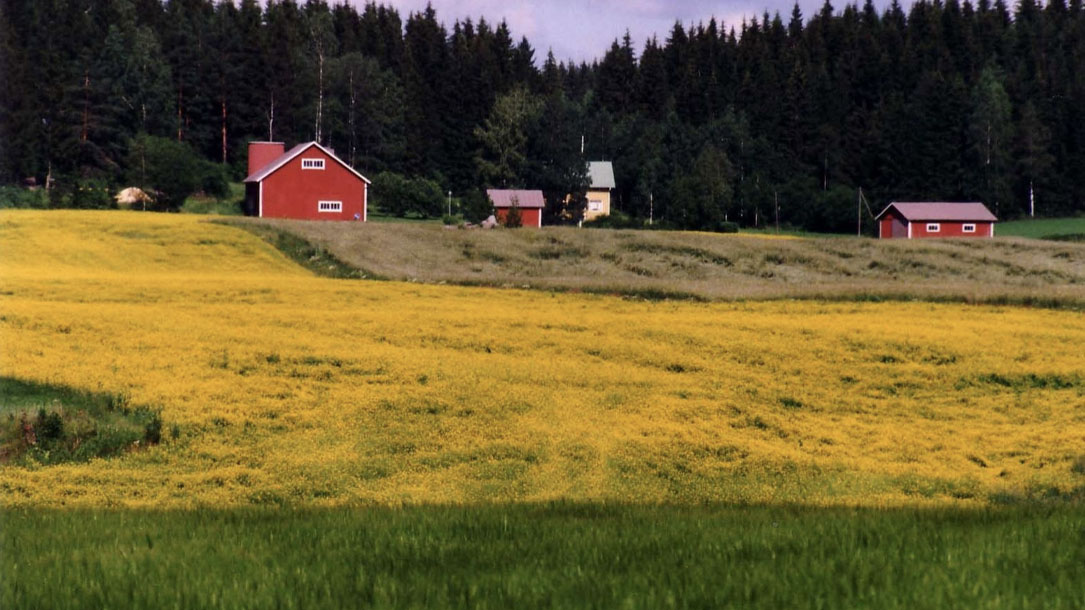
Understanding rural attitudes about climate change
“Rural Americans matter—a lot—to the fate of U.S. environmental policy. Not only do farmers, ranchers, and forest owners manage huge portions of American lands and watersheds, but rural voters also have an outsized impact on national policy. While rural Americans express support for natural resource conservation, they and their elected officials often voice less support for existing federal environmental policies and laws. Congressional action on a variety of environmental issues has been impeded by opposition from rural stakeholders.”
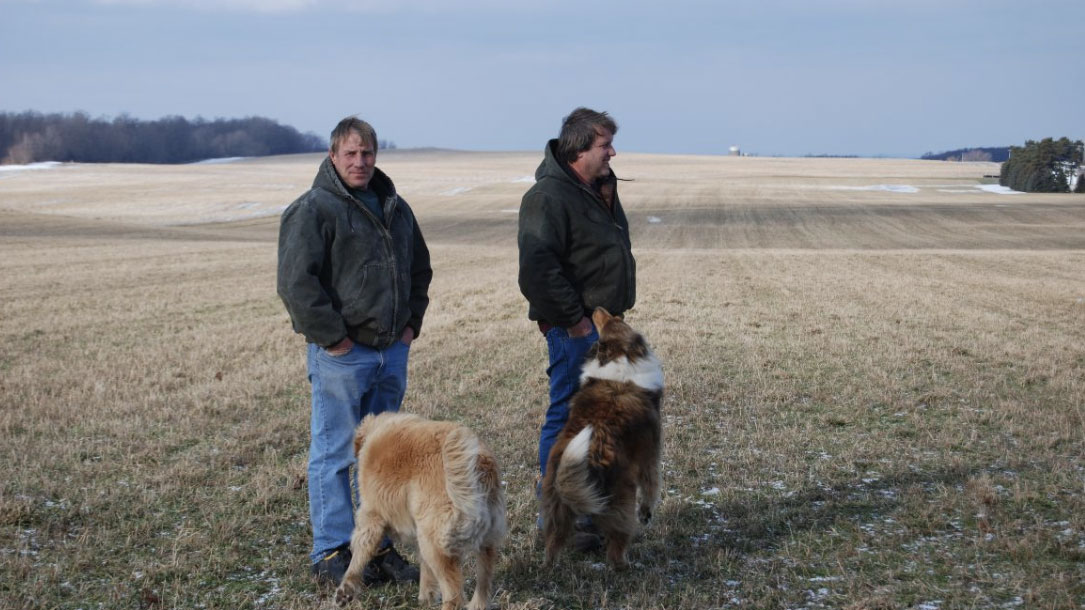
Understanding rural attitudes toward the environment and conservation in America
A recent study from Duke Nicolas Research Institution of Environmental Policy Solutions found that “Broadly, our study suggests that the urban/rural divide on the environment is not a function of how much rural voters care about the environment. Nor is it a function of how knowledgeable they are—rural voters appear relatively sophisticated about environmental issues…
[T]here are opportunities to engage rural voters on climate change and environmental policies generally.”
NOTE: There are additional reports and a webinar that I will share next month.
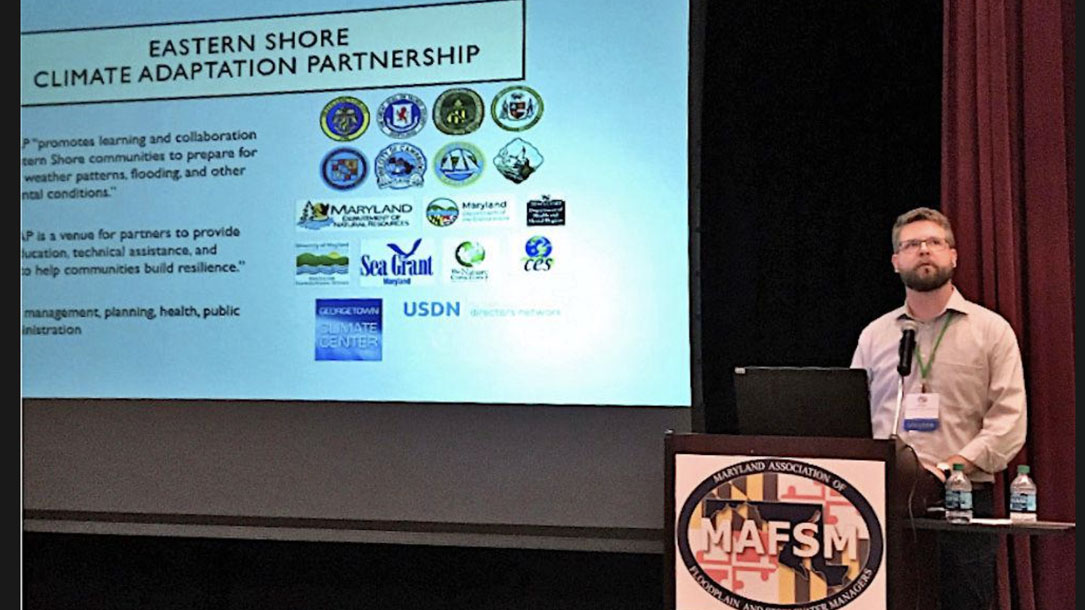
Grant for climate resilience outreach, education
Eastern Shore Land Conservancy: This project, entitled “Rise and Thrive: Building Understanding and Support for Climate Action on Maryland’s Eastern Shore,” is the second grant awarded to ESLC’s coastal resilience program by the Rauch Foundation in as many years.
The purpose of this project is to directly engage public and private audiences in order to build regional public support for climate adaptation solutions. The Eastern Shore of Maryland is the country’s third most vulnerable region to sea level rise, behind south Florida and Louisiana. Because of the threats of increased flooding, the loss of properties, and widespread ecological impacts, ESLC is working with communities to take action on these threats today…












